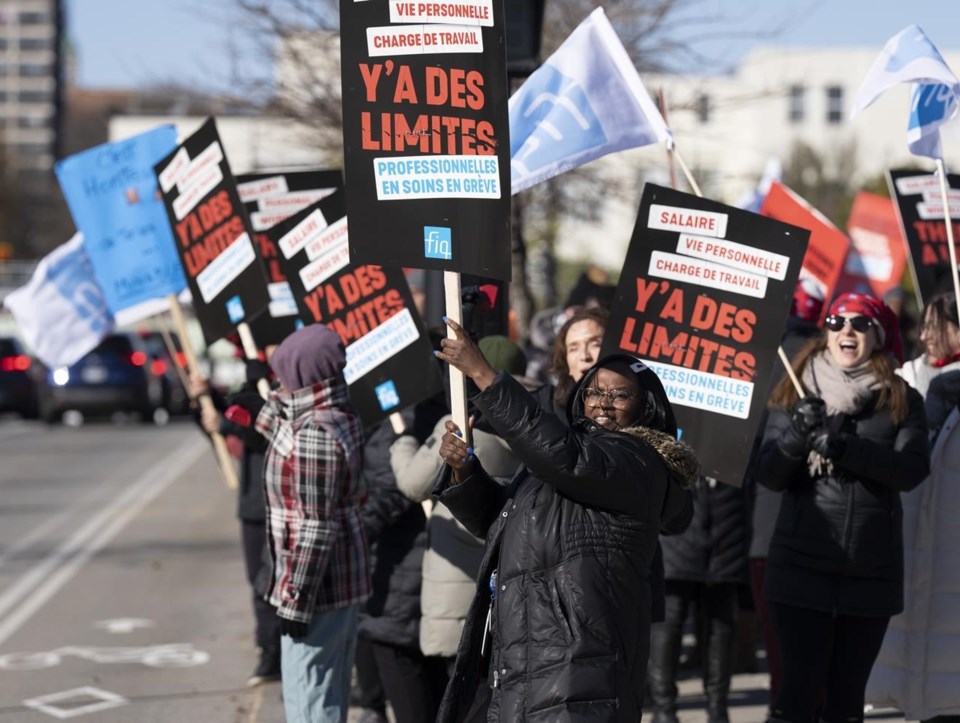MONTREAL — Some unionized Quebec health-care workers launched a two-day strike Wednesday, the latest group to walk off the job over stalled contract talks with the provincial government.
The Fédération interprofessionnelle de la santé du Québec, or FIQ, represents 80,000 nurses, licensed practical nurses, respiratory therapists and other health professionals, and the strike is affecting the majority of health-care facilities across the province.
Essential services are being maintained during the 48-hour strike, but the Health Department says some non-urgent surgeries could be postponed.
The government is negotiating with unions representing hundreds of thousands of public sector workers, including the FIQ.
Unions rejected Quebec's latest contract offer for all employees — a 10.3-per-cent salary increase over five years and a one-time payment of $1,000 to each worker. That was up slightly from the nine per cent over the same term offered last December.
The government has said that in addition to pay raises, its offer includes more money for workers and shifts it considers priorities, such as nurses working nights and weekends and teachers' aides in primary schools. Workers who earn less than $52,000 a year would also receive an additional one-per-cent increase.
The government has said the offer was serious and in line with inflation forecasts. On Tuesday, Finance Minister Eric Girard presented his economic update and said he has little room to increase government offers.
FIQ president Julie Bouchard said she's heard this refrain before.
“In all the years that there have been national negotiations with state employees, there has never been any room to manoeuvre," Bouchard said. "When it's time to negotiate with us, they don't have any money, but when it’s time for an election, oh my, there will probably be surpluses in the coffers."
Labour unions have not submitted a counter-offer to the latest government proposal. They have previously sought a three-year contract with annual increases tied to the inflation rate: two percentage points above inflation in the first year or $100 per week, whichever is more beneficial, followed by three points higher in the second year and four points higher in the third.
In addition to salary demands, the FIQ is calling for a law on nurse-to-patient ratios and more job stability. The union has complained the government wants to be able to move nurses between units, establishments and shifts as needed, treating them like interchangeable pawns.
Treasury Board president Sonia LeBel has said a review of how work is organized to be able to better respond to needs is a priority.
The FIQ also said Wednesday it will hold two more strike days — on Nov. 23 and Nov. 24 — during the same week many other public sector unions are planning to strike.
On Monday, members of four major public sector unions in Quebec walked off the job for one day and have promised to strike again between Nov. 21 and Nov. 23. Meanwhile, the FAE union, which represents 65,000 Quebec elementary and high school teachers, has said it will launch an unlimited general strike on Nov. 23.
This report by The Canadian Press was first published Nov. 8, 2023.
The Canadian Press



